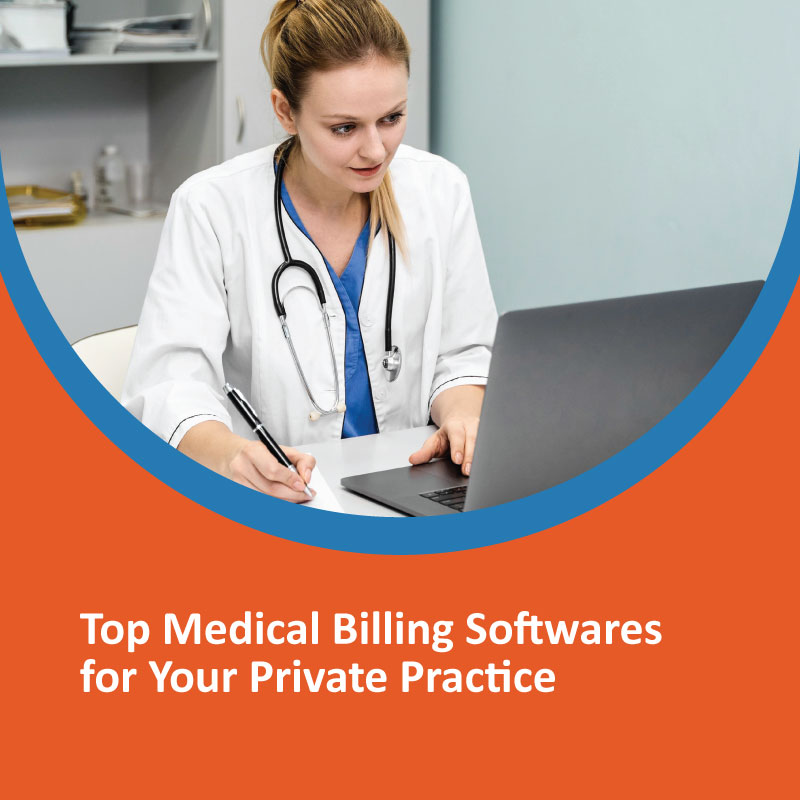Managing medical billing can be stressful without the right tools. That’s where billing software for medical practices becomes a game changer. It helps clinics and hospitals handle invoices, payments, insurance claims, and patient records all in one place. With smart automation and fewer errors, these billing tools allow healthcare professionals to focus more on patients and less on paperwork.
Let’s explore the best medical billing software that can save your time, reduce errors, and increase your clinic’s revenue.
You may read this: What is TPI Number in Medical Billing
Why Do You Need Billing Software for Medical Practices?
Whether you run a small clinic or a large hospital, medical billing software can help you stay organized and get paid faster. Here are some reasons why it’s a must-have:
- It simplifies complicated billing processes.
- Reduces paperwork and manual errors.
- Speeds up insurance claim submissions.
- Keeps patient and payment records in one secure place.
- Helps track unpaid invoices and due balances.
With so many benefits, choosing the right solution becomes important. Let’s take a closer look at some of the top options available today.
Best Billing Software for Medical Use
1. Kareo Billing
Kareo is one of the most popular choices among independent medical practices. It offers user-friendly features for scheduling, insurance billing, and patient statements.
Why it stands out:
Kareo has a clean interface, great customer support, and integrates easily with EHR (Electronic Health Record) systems. It also offers a mobile app for on-the-go billing.
2. AdvancedMD
AdvancedMD is perfect for larger practices that need a complete healthcare solution. It includes medical billing, scheduling, EHR, and practice management features.
Highlight:
Its automation features reduce manual work. The dashboard gives a full view of financial performance, helping practices grow.
3. DrChrono
DrChrono is a cloud-based software that works well for both billing and clinical tasks. It supports e-prescribing, scheduling, charting, and billing—all in one platform.
Bonus Point:
It’s designed for iPads and iPhones, which makes it ideal for tech-savvy professionals looking for flexibility.
4. NextGen Healthcare
NextGen offers powerful billing and revenue cycle management tools. It helps practices stay compliant with healthcare laws and provides insights through detailed reports.
Key Feature:
Its claim scrubbing feature improves the chances of first-time approvals from insurance companies.
5. PracticeSuite
PracticeSuite is an affordable solution that combines medical billing, practice management, and scheduling. It’s especially good for small to mid-sized clinics.
What’s great:
It provides a free trial and has a customizable dashboard that fits different specialties.
Key Features to Look for in Billing Software
When choosing the right billing software for medical use, make sure it offers these features:
Must-Have Features:
- Claim Management: Submit and track insurance claims with ease.
- Patient Billing: Generate accurate statements and bills.
- Payment Processing: Accept online and offline payments securely.
- Reporting: Get detailed financial reports and analytics.
- Integration: Sync with EHR systems and other tools.
These features not only make your work easier but also ensure smooth day-to-day operations.
Choosing the Right Software for Your Practice
Before buying, ask yourself:
- Is the software easy to use for your team?
- Does it fit your budget?
- Is customer support reliable?
- Can it handle your specialty-specific needs?
- Will it scale as your practice grows?
Most companies offer a demo or a free trial. Always test the software to see if it matches your workflow.
The Future of Medical Billing Software
Technology is moving fast, and so is healthcare. Future billing software for medical will likely use artificial intelligence (AI) and machine learning to predict patient payments, reduce denials, and improve revenue cycle management. Cloud-based systems will become more common, offering better flexibility and data access from anywhere.
By investing in modern billing solutions today, you prepare your clinic for tomorrow’s challenges.
Conclusion – Billing Software For Medical
In today’s fast-paced healthcare world, having the right billing software for medical use can make all the difference. It helps you stay organized, reduce errors, and get paid on time. Whether you’re a small clinic or a large practice, investing in good software is not just a smart move—it’s a necessary one.
Choose the one that fits your needs, test it out, and let technology handle the complex parts of your billing process.
Frequently Asked Questions
Q1. What is medical billing software?
Medical billing software is a digital tool that helps healthcare providers create invoices, manage patient payments, and submit insurance claims.
Q2. Can small clinics use billing software?
Yes, many billing software options are designed for small clinics with budget-friendly plans and easy-to-use features.
Q3. How does billing software for medical reduce errors?
It automates tasks like coding, claim submission, and payment tracking, which lowers the chance of human mistakes.
Q4. Is cloud-based billing software secure?
Yes, most cloud-based billing tools use advanced security measures like encryption and backups to protect patient data.
Q5. Do I need training to use billing software for medical?
Many providers offer training or tutorials. Most modern billing tools are designed to be user-friendly and require minimal training.

